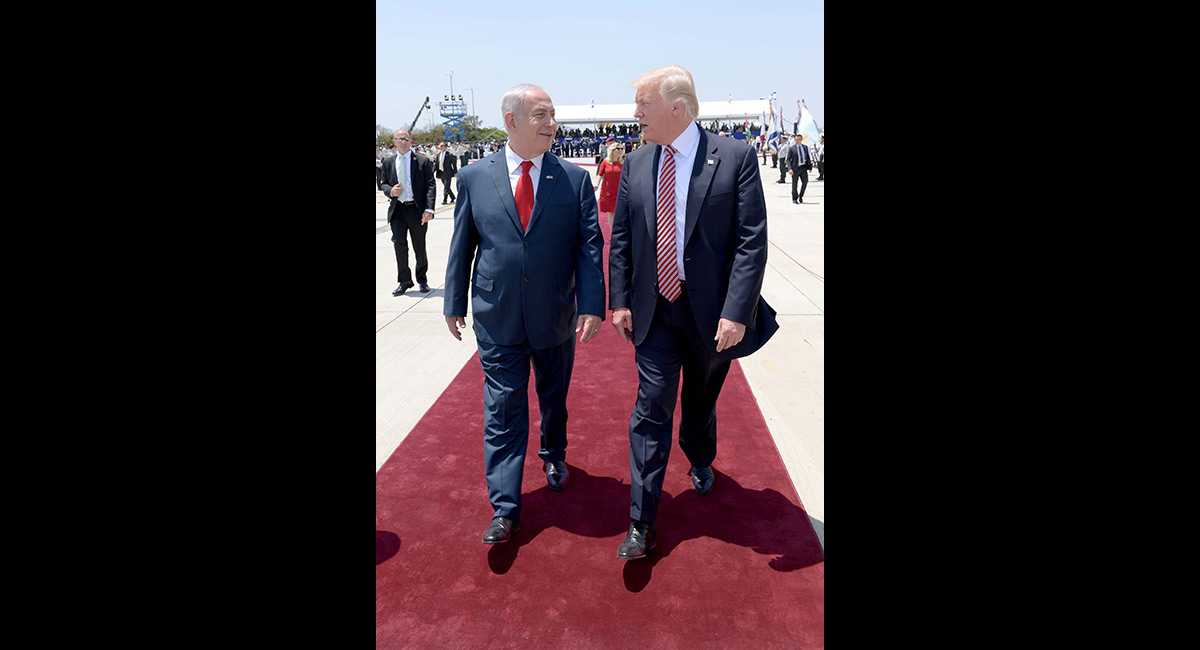Donald Trump’s foreign policy has had some high points, such as formalizing relations between Israel and some of the Gulf Arab states, prodding U.S. allies to spend more on their security, and, most of all and contrary to elite opinion, reducing forces in Afghanistan and Iraq. At other times, though, Trump’s erratic belligerency has been downright scary.
Remember, before Trump converted America’s North Korea policy into one of easing tensions by photo-op summitry, he threatened to bring “fire and fury” to the hermit kingdom, alluding to the use of nuclear weapons. And although the Trump administration denied involvement in a ham-handed coup attempt against the Venezuelan government of Nicolás Maduro that just so happened to include two ex-U.S. Special Forces members, Secretary of State Mike Pompeo certainly seemed eager to get the captured former soldiers back.
More clearly, Trump launched a cruise missile attack on Syria, mainly to show that he was tougher than Barack Obama, who had threatened one and then negotiated the removal of a significant portion of Syria’s chemical weapons. Trump also launched a trade war against China, has criticized that nation for giving the world the “China virus,” and changed America’s policy of neutrality in territorial disputes among nations in the South China Sea to support of China’s adversaries. Any one of these threats or hostile interactions could have led to a military dust-up, or even war.
However, the nation at the receiving end of most of the Trump administration’s aggressive impulses has been Iran.
Trump, during the 2016 campaign, relentlessly lambasted Obama’s nuclear agreement with Tehran, clinging to a promise to tear it up and substitute a better deal. Under the original deal, Iran had agreed to freeze its nuclear program in exchange for the lifting of some international economic sanctions. As promised, Trump eventually tore up the agreement and reimposed grinding sanctions but was never able to intimidate the Iranians to make more concessions in order to sign a revised deal. Instead, bilateral relations deteriorated even further when Trump assassinated Qasem Soleimani, effectively Iran’s second most powerful leader. Now the leading scientist in Iran’s nuclear program has also been whacked.
Iran has blamed Israel for the assassination, but Israel has refused to comment. The attack on the scientist does bear the markings of one of the many Israeli targeted killings in the Middle East. If Israel did indeed kill the scientist, then the question becomes: did the famously pro-Israel Trump “greenlight” the hit? Even if he did not, was Israel trying to get it done before a very friendly Trump administration transitions to a perceived less friendly Biden administration? After all, Biden has said that he would like to rejoin the multilateral Iran nuclear agreement. Trump and Israel may be trying to so pollute U.S.-Iran relations that such a move is more difficult or even impossible.
Yet Biden should soldier through this tumult and rejoin the deal. Having Iran’s nuclear program suspended was better than having a growing stockpile of Iranian nuclear material—as Iran has slowly, one might even say reluctantly, amassed since Trump reneged on the pact. Iran only slowly ramped up its program, as it gave the Europeans time to help it get around renewed U.S. sanctions. But because the Europeans do so much business in America and would be penalized by the United States for helping ease the effects of its renewed sanctions on Iran, Europe was not successful in its efforts.
The rationality of the hardline Netanyahu government’s virulent opposition to the Iranian nuclear agreement was never clear, unless Israel thought the Trump administration would attack Iran’s nuclear facilities so that it wouldn’t need to or would at least greenlight such an Israeli strike. After all, the agreement did freeze its main rival’s nuclear program—as opposed to the current situation in which Iran is amassing more nuclear material.
Before Trump leaves the stage in about two months, just to soil the nest for the incoming Biden administration, he might be willing to continue the initial salvo against the nuclear program by launching major airstrikes against it, or by giving Israel the wink and the nudge to do so. These policy options are a really bad idea.
After Trump withdrew from the nuclear agreement, Iran showed signs of wanting to salvage the deal with the other signatories. Furthermore, when Trump assassinated its second most powerful leader, Iran was very measured in its retaliation against U.S. forces. Primarily, Iran wants to repair its economy to avoid social unrest, which is a threat to its government. To achieve this goal, it first needs sanctions relief. Thus, Biden should work to rejoin the nuclear agreement and repair relations with that nation, no matter what Israel or Trump may do between now and Inauguration Day.

















